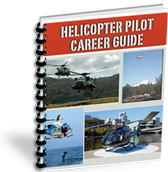Helicopter Pilot Careers In Law Enforcement
In recent years there has been an increase in the use of helicopters by law enforcement. Helicopters provide a clear advantage to law enforcement. They offer speed, a bird’s eye perspective, and the use of specialized sensors such as infrared that enable them to “see” in the dark. A career flying law enforcement helicopters is definitely within your reach and can offer excitement as well as financial rewards and job security.
Most, but not all law enforcement agencies require that you be a law enforcement officer before you become a pilot. This means attending the police academy and spending time in a patrol car or walking a beat. This will expose you to the situations that police officers on the ground encounter daily and you’ll be better able to determine the best way to assist with an air unit. Some police aviation units, like the Maryland State Police Aviation Unit, are comprised of civilians. Others hire agencies to provide the helicopters and the pilots.
The scope and depth of law enforcement operations varies with the department. In general, larger departments have more capabilities than smaller departments. Some departments fly under VMC (visual meteorological conditions) only which means they need to be able to see the horizon to maintain the proper orientation of the aircraft while others operate in IMC (instrument meteorological conditions) which is flight solely referenced to the flight instruments. Some departments have forward looking infra red while others only have a spot light and others fly using night vision goggles.
Law enforcement flying for the most part is done close to the ground. Law enforcement helicopters are usually trying to find people and vehicles that are hidden or are trying to evade and/or escape. Because of this pilots who fly law enforcement helicopters must remain vigilant for obstructions such as towers and wires.
Pay for law enforcement helicopter pilots varies. Larger departments in metropolitina areas are generally paid better than smaller rural departmets. Pay can range from $40,000 per year to $100,000 per year. In addition police helicopter pilots receive the same benefits as any any police officer such as a pension, health and dental care.
Law enforcement flying can be very exciting and rewarding. Each police department has its own guidelines on how it recruits and trains its pilots. If you’re interested in flying for a certain department contact them and ask about their requirements. You also may want to speak to one of their pilots. They’re usually very willing to share information.
Get our free guide and take a look at the numerous career opportunities available in commercial/government helicopter aviation.
Just fill out your name and e-mail address in the boxes below.